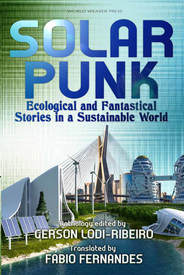 When I started looking around for possible translators to bring the Brazilian Solarpunk anthology to English readers, I very quickly set my sights on Fábio Fernandes, a Brazilian writer and translator that I was familiar with from his publications in anthologies such as People of Colo(u)r Destroy Science Fiction! and The Apex Book of World SF. He was on board with the project right away—apparently he'd already read the Portuguese version, and had worked with the publishers on a steampunk anthology. In the interview below, Fábio talks about the challenges of translation, the differences between the SFF communities in the US and Brazil, and what he's hoping to see with the future of solarpunk fiction. 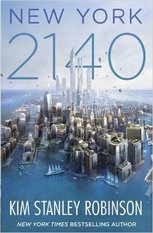 Sarena Ulibarri: You're a translator, but you're also an accomplished writer, with publications in both English and Portuguese. Since you have one foot in the Brazilian SFF world and one in the US/UK SFF world, what are the main differences you observe between these two publishing worlds? Fábio Fernandes: They are two really different worlds, to the point of make any writer who wants to walk between them a schizophrenic of sorts. The Anglo market is well established, maybe because of the pulp magazines in the 1920s, and today there are many magazines (most of them digital, but part of a paying market nonetheless), and also a variety of publishing houses. Brazil has been building a solid market in the past few years, but there is only one paying venue right now for SF, Fantasy and Horror (Trasgo magazine, edited by Rodrigo Van Kampen), and a handful of publishers (among which Editora Draco). The Brazilian market is more amauterish (both in good in bad ways), but that's changing at a fast pace. SU: You've translated some amazing SFF books into Portuguese, including William Gibson's Neuromancer and Anthony Burgess's A Clockwork Orange. What are some of the biggest translation challenges you've faced? FF: These two novels were, hands down, the most challenging to translate. A Clockwork Orange took nine months, and it was the most exhausting translation I've ever done, one that demanded lots of research. I started studying Russian to get a better grasp on the nadsat language, among other things. Neuromancer was also demanding, but it was a demand of a different nature. For me, Neuromancer is the Moby-Dick of science fiction, and the opening sentence alone took me a couple of months, realtime, to translate properly (I say "realtime" because I've been thinking of how I would translate it since I read it for the first time, in 1989 (I finally translated it in 2009). SU: What do you most hope to see in new books and stories following the solarpunk tradition? FF: Optimism. I'm a huge fan of Kim Stanley Robinson's work, and also of his concept of a "logistic utopia". This is not the kind of utopia you read about in classic SF, where every human problem is solved and we live in a post-scarcity age. I don't believe this age will ever come, but I do believe in working for a more equal, just society. I love when I can read stories dealing with this in a mostly optimistic way. SU: The Clarion and Clarion West workshops can be a fantastic network for writers. Who were some of your teachers and classmates, and what is one of your favorite memories from the Clarion West workshop? FF: Clarion West, in 2013, was, hands down, one of the highlights of my life. I'm 51 years old and I waited 25 years to get there. I felt like a teenager (but with a salt-and-pepper beard) meeting some of my literary heroes. Neil Gaiman, Chip Delany, Ellen Datlow, Liz Hand, Margo Lanagan, and Joe Hill —not to mention other writers who dropped there to talk to us, like Ted Kosmatka, Marc Laidlaw, and Kim Stanley Robinson (who I had translated years ago for the late Brazilian version of Asimov's). I have plenty of good memories from Seattle. One of them is playing arcade games with Joe Hill and his sons — and losing! (Boy, are they good!!) other good memory is my one-on-one with Samuel Delany, in which he analyzed not one, but two of my stories and hinted that I might want to focus on novels instead of short stories — which is exactly what I'm doing now. SU: What are you working right now as an author or editor? FF: I'm finishing a short story for a New Weird anthology in Spanish. Alas, I'm not very good writing in Spanish (My native language is Portuguese), but I'm working on that. Aside from that, working on my first novel in English (almost finishing the first draft) and trying my hand again as an editor in a couple of projects for Brazilian publishers. Fingers crossed! 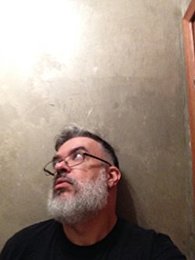 Fábio Fernandes lives in São Paulo, Brazil. He has published two books so far, an essay on William Gibson’s fiction, A Construção do Imaginário Cyber, and a cyberpunk novel, Os Dias da Peste (both in Portuguese). Also a translator, he is responsible for the translation to Brazilian Portuguese of several SF novels, including Neuromancer, Snow Crash, and A Clockwork Orange. His short stories have been published online in Brazil, Portugal, Romania, the UK, New Zealand, and USA, and also in Ann and Jeff VanderMeer’s Steampunk II: Steampunk Reloaded, Southern Fried Weirdness: Reconstruction (2011), The Apex Book of World SF, Vol 2, and Stories for Chip. He co-edited (with Djibril al-Ayad) the postcolonialist anthology We See a Different Frontier. He is a graduate of Clarion West, class of 2013.
0 Comments
Your comment will be posted after it is approved.
Leave a Reply. |
World Weaver PressPublishing fantasy, paranormal, and science fiction. Archives
February 2024
|
- Home
-
Books
-
All Books
>
- Beyond the Glass Slipper
- Bite Somebody
- Bite Somebody Else
- Black Pearl Dreaming
- Cassandra Complex
- Causality Loop
- Clockwork, Curses, and Coal
- Continuum
- Corvidae
- Cursed: Wickedly Fun Stories
- Dream Eater
- Equus
- Fae
- Falling of the Moon
- Far Orbit
- Far Orbit Apogee
- Fractured Days
- Frozen Fairy Tales
- Glass and Gardens: Solarpunk Summers
- Glass and Gardens: Solarpunk Winters
- Grandmother Paradox
- Grimm, Grit, and Gasoline
- Haunted Housewives
- Heir to the Lamp
- He Sees You When He's Creepin': Tales of Krampus
- Into the Moonless Night
- Jack Jetstark's Intergalactic Freakshow
- King of Ash and Bones (ebook)
- Krampusnacht
- Last Dream of Her Mortal Soul
- Meddlers of Moonshine
- Mothers of Enchantment
- Mrs Claus
- Multispecies Cities
- Murder in the Generative Kitchen
- Recognize Fascism
- Scarecrow
- Sirens
- Shards of History
- Shattered Fates
- Skull and Pestle
- Solarpunk (Translation)
- Solarpunk Creatures
- Solomon's Bell
- SonofaWitch!
- Speculative Story Bites
- Trenchcoats, Towers, and Trolls
- Weredog Whisperer
- Wolves and Witches
- Anthologies and Collections
- Novels
- Novellas
- Fairy Tale
- Fantasy
- Romance
- Science Fiction
- Urban/Contemporary Fantasy
- Young Adult SFF
-
All Books
>
- Blog
- About
- Contact
- Press / Publicity
- Newsletter Signup
- Privacy Policy
- Store

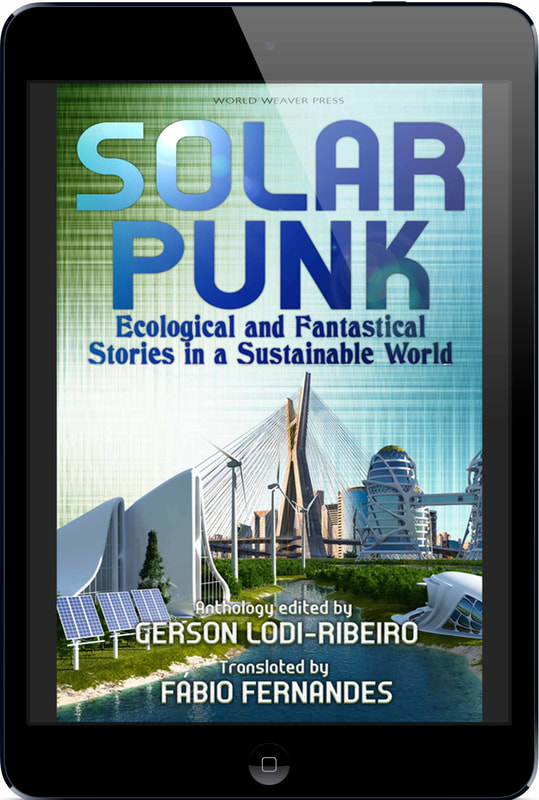
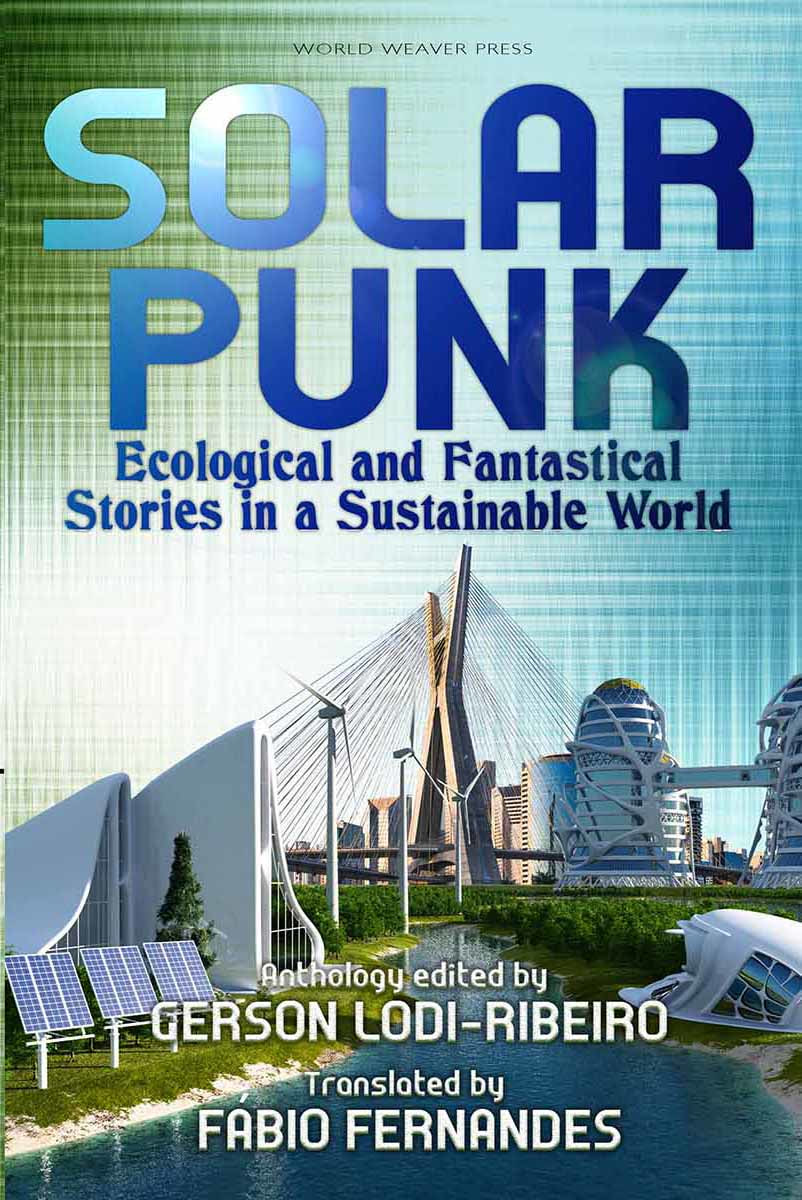
 RSS Feed
RSS Feed